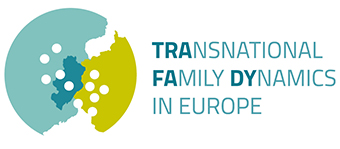On 30 October 2023 in Berlin, Germany, TraFaDy held a workshop on the impact of European migration policy on Transnational Family Dynamics. The specific occasion to have the workshop was the current debate on introducing a new migration and asylum pact in the European Union. A significant amount of transnational families has a migration or refugee background. Still, currently the debate, particularly on the asylum system, is mainly driven by the perspective of reducing the numbers of refugees entering the European Union and managing the distribution of them within the EU. The perspective of family life and children wellbeing seem underrepresented. Members of the TraFaDy network have very different background. Most of them have a research background, but it is stakeholders as well, that are represented. Having this wide base, it is one of TraFaDy’s core aims to link theoretical findings to political developments and formulate arguments and proposals for them. It is particularly TraFaDy’s Working Group 6 that concentrates on this work.
The workshop analysed the current proposals on introducing the new migration and asylum pact and discussed potential impacts on Transnational Families. The workshop had a hybrid set up, including 12 persons in the office of the Association of German Family Organisations and two person online. It was Cis Vangoidsenhoven of the Federal Agency for the reception of asylum seekers (Fedasil) in Belgium, who set the scene by introducing the new Pact on Migration and Asylum of the EU. He explained the current state of play and the path it has followed in the past as well as the main crucial items on which there already has been found an agreement and those that are still to be decided on. On this base Alyona Samar from the organisation Missing Children Europe and Stefan Keßler, Jesuit Refugee Service Germany, stated the first comments, highlighting their perspective on the developments and on what they ask for the remaining process until a result may be found in within the Belgian presidency of the European Council.
In the afternoon, the focus switched to the challenges for and needs of refugee families as transnational families. Those were linked to the current debate on the asylum pact and the potential impacts for the families and the children. The participants highlighted the importance of taking the view of the families as the migration of families or their individual members is not only an individual choice. Instead it often is a family risk strategy which is related to the family needs and taking into account the negative impacts of their choices. The experts raised their concern that the state policies on border crossings shape and frequently negatively impinge family life. The participants shared the results of their studies on migrant and refugee families and children, arguing that it is especially the children that are affected massively, both short term and long term. This is especially true when families and children were held in arrival centers and being separated from other family members. But it shouldn’t only be the immediate time span of the arrival that has to be seen as a resettlement has long term impacts for families. Among others, the participants reasoned, that for society as well, there is a positive long term effect when supporting the family lives of refugees, for instance by allowing an appropriate family reunification as research has shown that a secure family life is an important precondition for integration. It was also highlighted that “Europe” and “the European Union” are not congruent and that the European states that currently are not in the European Union might face raising challenges if their perspective as being important countries for the arrival of refugees are neglected. Among others, the participants identified that especially on the family members that are left behind there still is a lot of research to do.
A report on the will be written on the meeting and published on the TraFaDy website. If you would like to receive it directly, please write a short note to Sven Iversen (sven@trafady.eu).
